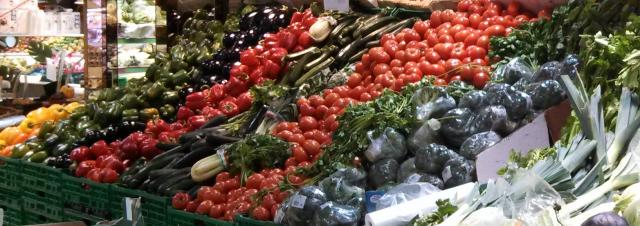Thanks for sharing this article! When I came across the eggs, I was reminded that when I was in Paris last month, I saw a display of brown eggs, sitting alongside the BEAUTIFUL produce display, at room temperature! (Sorry, didn't think to shoot the eggs, which were sitting to the left.)
.
Eggs don't really need to be refrigerated if we use them instead of letting them linger. In the summer, I buy eggs by the gross. In the winter, but the 2.5 dozen skid. I refrigerate them because the guests are so used to it. But it's really a waste. I also so people who put tomatoes in the fridge, which drives me crazy... they lose all their flavour when refrigerated.
.
I keep my eggs refrigerated. Since I JUST recertified for my food license, I thought I would pass this along from:
http://www.servsafe.com/faqs/?product=ServSafeFoodSafety&page=3#FAQLink70
Eggs can be received at 45°F (7°C), while other potentially hazardous foods such as meat, poultry, and fish must be received at 41°F (5°C) or lower. According to section 3-202.11 of the Food and Drug Administration (FDA) Food Code, if a temperature other than 41°F (5°C) is specified by law governing the distribution of a potentially hazardous food, such as laws governing milk, molluscan shellfish, and shell eggs, the food may be received at the specified temperature. Current laws for interstate shipment of shell eggs allow a temperature of 45°F (7°C).
Federal regulations effective August 27, 1999, require shell eggs to be transported and distributed under refrigeration at an ambient temperature not to exceed 45°F (7°C).
The FDA reviewed research indicating that Salmonella Enteritidis multiplies at temperatures of 50ºF (10ºC) and above but can be inhibited at lower temperatures, e.g., 46ºF (8ºC), 45ºF (7ºC), and 39ºF (4ºC). Based on this research and USDA's temperature requirement during transport, FDA implemented regulations that establish a maximum ambient air temperature of 45ºF (7ºC) for eggs stored and displayed at retail establishments.
.




